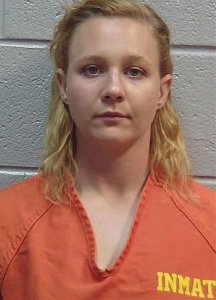A former government contractor accused of leaking confidential information to the media has been sentenced to more than five years in prison.

Reality Winner, 26, was accused of taking a report about a 2016 Russian military intelligence cyberattack from the NSA facility where she worked and sending it to an online news outlet.
Winner initially faced 10 years in prison and a $250,000 fine, but accepted a plea deal. A federal judge sentenced her to 63 months in prison with three years of supervised release.
The former US Air Force linguist wore an orange jumpsuit and handcuffs as she sat down in the Augusta, Georgia, courtroom Thursday morning. Winner cracked a small grin as she was comforted by one of her attorneys, who defended her character and emphasized she accepted responsibility for her actions.
“She’s a good person,” said attorney John Bell. “Someone who didn’t understand the magnitude of what she was doing.” Bell also pointed out that Winner was a first-time offender who had wanted to serve her country.
“I had no intention to harm national security,” Winner told the court.
In a statement, John C. Demers, assistant attorney general for national security, praised prosecutors and agents for holding Winner accountable.
“I hope their success will deter others from similar unlawful action in the future,” Demers said.
“This defendant used her position of trust to steal and divulge closely guarded intelligences information, said US Attorney Bobby L. Christine. “Her betrayal of the United States put at risk sources and methods of intelligence gathering, thereby offering advantage to our adversaries.”
Winner was a federal contractor working with Pluribus International Corp. in Augusta with top-secret security clearance when she leaked information that served as the basis for a June 2017 article by The Intercept, detailing a classified National Security Agency memo that contained information about a Russian cyberattack on a supplier of US voting software supplier.
According to a federal complaint, Winner printed the intelligence report and mailed it to the news outlet. When the outlet contacted the NSA, saying it had what appeared to be a classified document, the agency provided a copy, which appeared to have been folded or creased, the complaint said.
That led to an internal audit that revealed that Winner was one of just six people who had printed the document and the only one who had email contact from a desk computer with the news outlet, according to the complaint.





















